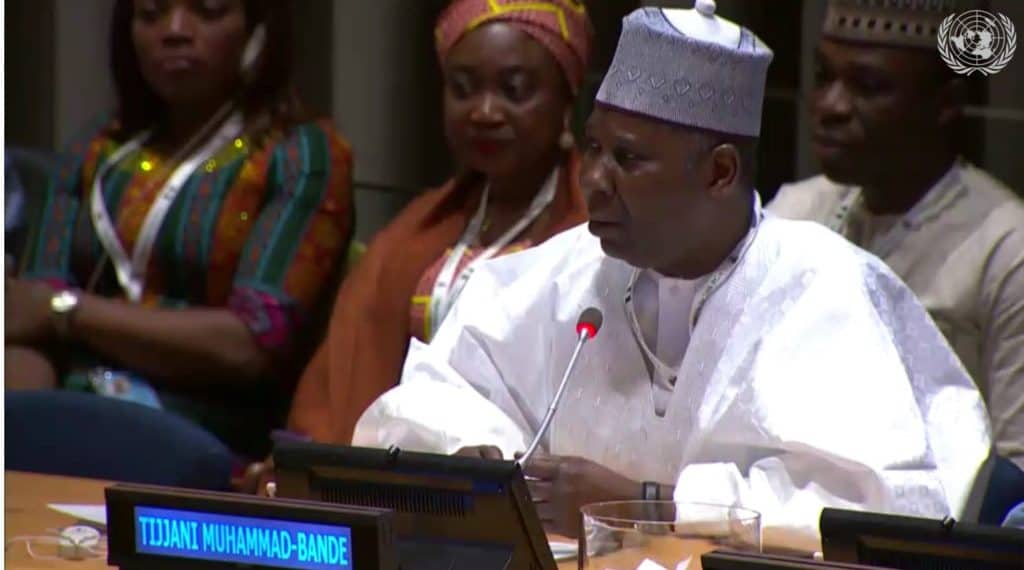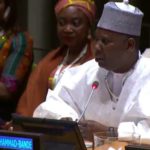1.3K
By Asma’u Ahmad
The Nigeria’s Permanent Representative to the United Nations, Ambassador Tijjani Muhammad-Bande, is set to be the President of the 74th session of the UN General Assembly (UNGA) beginning in September.
Muhammad-Bande, a professor of Political Science and former Director-General of the National Institute for Policy and Strategic Studies (NIPSS), is the only candidate for the 74th UNGA presidency, which is zoned to Africa.
For almost three hours on May 13, the Nigerian envoy sat down with other stakeholders at an informal dialogue to clarify his vision and take questions on how he intends to pursue it.
The forum, presided over by the outgoing UNGA President, Ms Maria Espinosa, and attended by representatives of many countries, held inside the Trusteeship Council Chamber at the UN headquarters in New York.
He described the United Nations as the most important and substantive global governance body. He said the organisation remains the most effective platform to address challenges facing humanity such as terrorism, climate change, pandemics, inequality, gender discrimination, illiteracy, poverty and hunger, among others.
Professor Bande said if elected, he would ensure that all the mandates from previous sessions were completed. It is important to do so, according to him, since they are mandates given by all 193 members of the Assembly.
He said: “Global peace and security, which are foundational elements of the UN Charter, will receive great attention.
“Terrorism, nuclear proliferation and occasional challenges concerning use of other weapons of mass destruction underscore the need for peace and security to be prioritised. “These problems can only be effectively tackled through collaboration or partnership among nations.”
He said current efforts by the UN Security Council working with regional organisations in this regard should be applauded and sustained.
On climate change, he said the Paris Climate Change Agreement of 2015 was one of the most important achievements of the UN. “The impact of climate change on how we live is very clear,” he said. The envoy cited the rising threats of cyclones, desertification and other natural disasters arising from climate change.
Tijjani Bande also explained his vision on how to engender inclusion, gender equality and human rights. *On the Sustainable Development Goals (SDGs), the envoy said: “we are not on target”. The reasons for that, he noted, are multifaceted and reflect national and other realities. He zeroed in on SDGs 1, 2 and 4 which target poverty, hunger and quality education.
He describes illiteracy, poverty and hunger as serious afflictions of humanity. Therefore, he said the 74th UNGA would give adequate attention to them.
The election is scheduled to hold at the UN headquarters in New York on June 4, after which the next president would be inaugurated on September 17.
Muhammad-Bande’s emergence as president would make it Nigeria’s second time to hold the office in 30 years. Late Major General Joseph Garba from Plateau State, served as President of the UNGA between 1989 and 1990.
The office is rotated among the five geographical groups: Africa, Asia, Eastern Europe, Latin America and Caribbean, and Western Europe.
Established in 1946, UNGA is one of the six principal organs of the UN, the only one in which member nations have equal representation. All 193 members of the United Nations are members of the General Assembly, with the addition of Holy See and Palestine as observer states.
It is the main deliberative, policy-making and representative organ of the UN. Its powers include overseeing the UN budget, appointment of the non-permanent members to the Security Council, and appointment of the UN Secretary-General.





